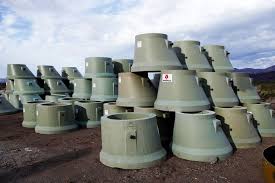Polymer concrete manholes have many advantages. They offer longer life and less disruption during construction, as they have been manufactured to withstand extreme conditions. In addition, they can be installed on any type of surface, including sidewalks, roads, and sewers. To find out more, read on. Listed below are just a few of the benefits of these maintenance holes.
Polymer Concrete Manholes Durability
Polymer concrete manholes are more durable than traditional concrete maintenance holes. The new polymer concrete inserts are designed to fit inside an existing manhole, thereby eliminating the need for bypass pumping. Polymer concrete is less likely to corrode than traditional concrete manholes, and it is a less disruptive construction material. Its lower absorption capacity means it is better suited for areas with high groundwater tables.
These manholes are structurally sound but may require structural maintenance in the future. Affected manhole may experience structural fatigue from infiltration of water through precast joints, mortar joints, and pipe connections. A general maintenance strategy would include cementitious repairs or chemical grouting. The degree of corrosion may be light or heavy. Light wall corrosion is characterized by deteriorated brick mortar, while heavy wall corrosion affects exposed concrete and wall surface sections.
The study used three precast manholes in a geotechnical testing chamber. In the chamber, the soil was compacted to 25 ft. The maintenance hole specimen was then loaded with hydraulic jacks of 202 kip to simulate a truckload. Strain gages and steel reinforcements were attached throughout the manhole. Pressure cells with 102 psi capacity were used to measure in-situ stresses.
A variety of rehabilitation options can help utilities save money and time. However, choosing between different materials can pose challenges for decision-makers and design engineers. Many factors must be considered when selecting the right material for manhole rehabilitation, including environmental effects and hydrogen sulfide-induced corrosion. In this case, polymer concrete has advantages.
Sewer Systems
For sewer systems, Armorock polymer concrete manholes offer better resistance to MIC. Its wall thickness is comparable to the thickness of standard concrete structures, but the material can be more resistant than portland cement. Moreover, it requires less time for construction, which is an important consideration for any utility manhole. In addition to maintenance holes, other structures can be made of polymer concrete.
The new safety factor is based on a model that considers the maintenance hole’s uplift displacement and backfill settlement. The new safety factor considers these variables and compares them with a conventional safety factor.
In addition to the new safety factor, this method also offers improved performance when minimizing backfill settlement. The analysis includes consideration of the volume of the backfill before and after the manhole is installed.
The researchers also tested the mechanical properties of polymer concrete by replacing sand with cork aggregates. The results showed that the materials with a high percentage of PET reduced their density by 19.8%.
The polymer concrete with 20% PET showed lower elasticity modulus and fracture toughness. The final model includes an example of a 25-mm-thick wall thickness. The maximum compressive and tensile stresses were calculated using ASTM standards.
Final Words
Polymer concrete manholes are more durable than their conventional counterparts. Aside from reducing the cost, polymer concrete maintenance holes are easier to install and require less disruption during construction. Aside from being cheaper, polymer concrete manholes also provide superior corrosion resistance. Unlike conventional concrete, wastewater is full of bacteria that cause corrosion. The presence of these bacteria makes conventional concrete prone to damage.

